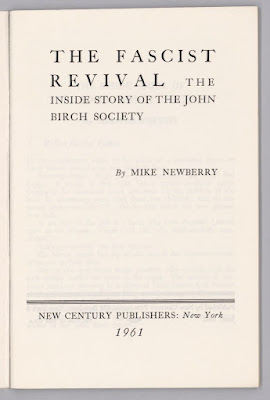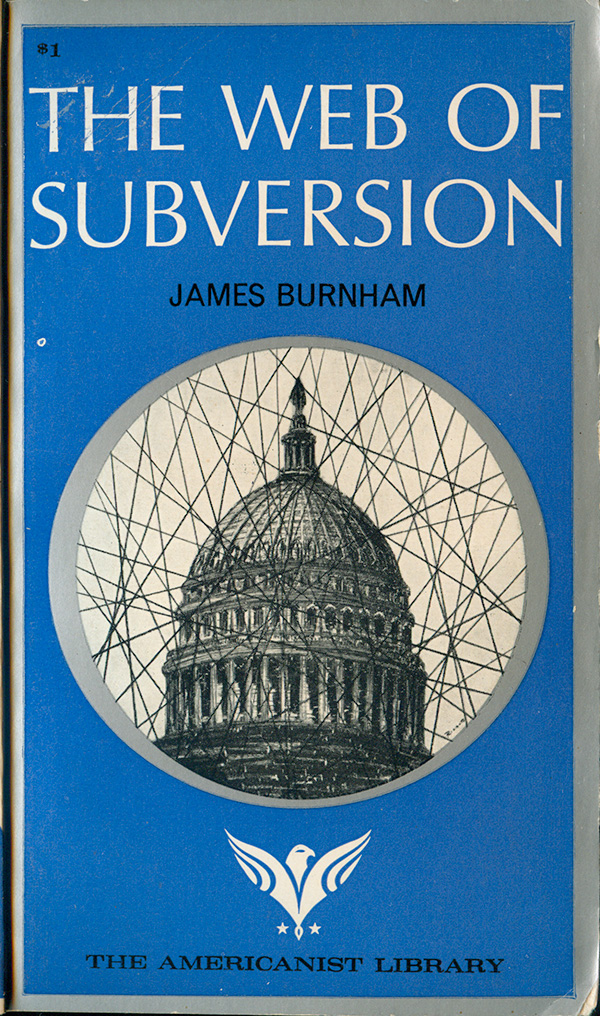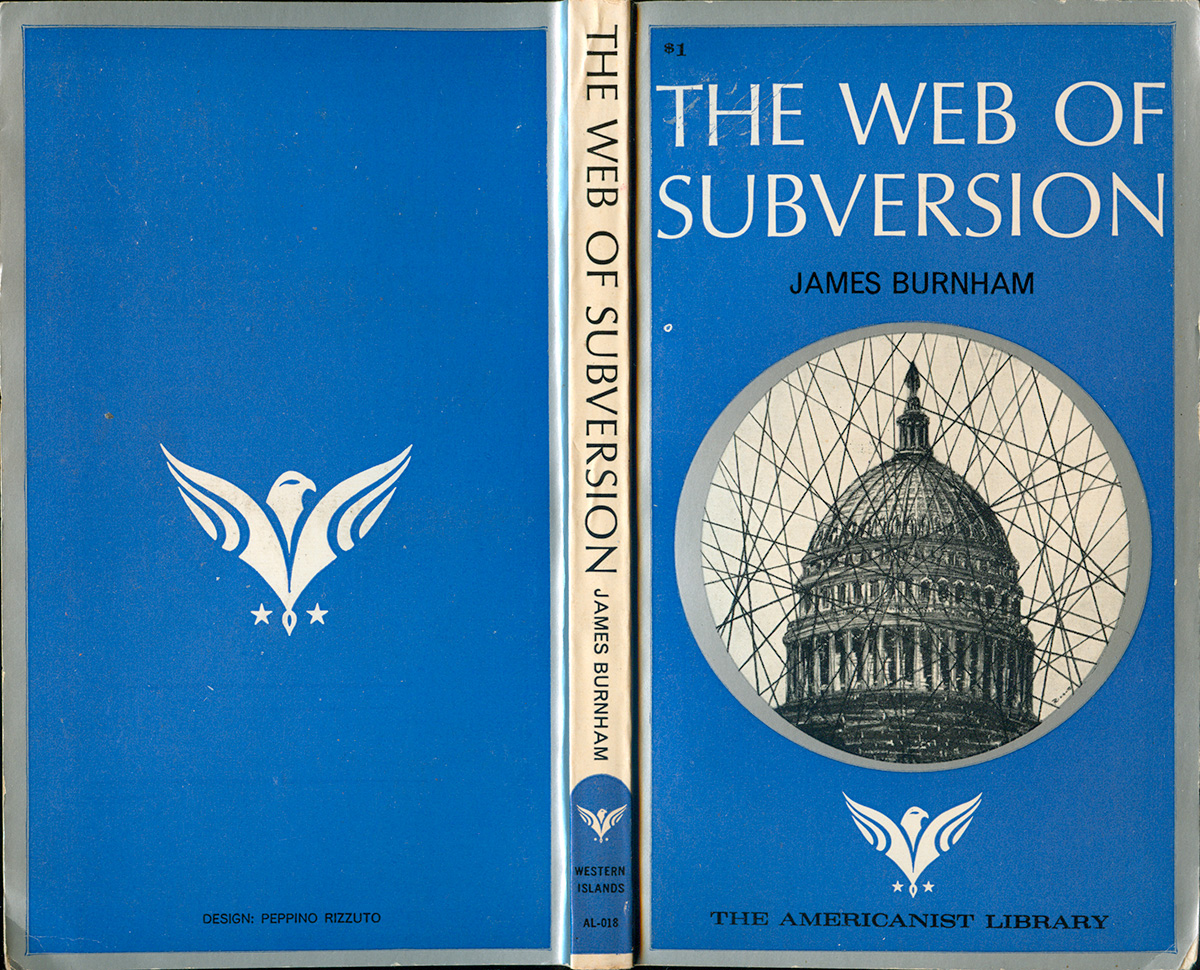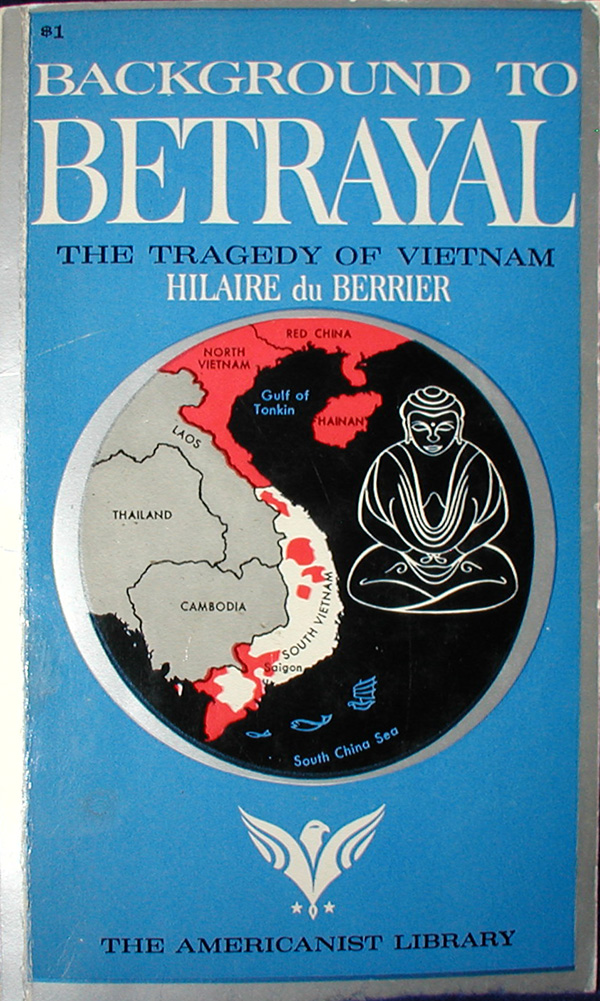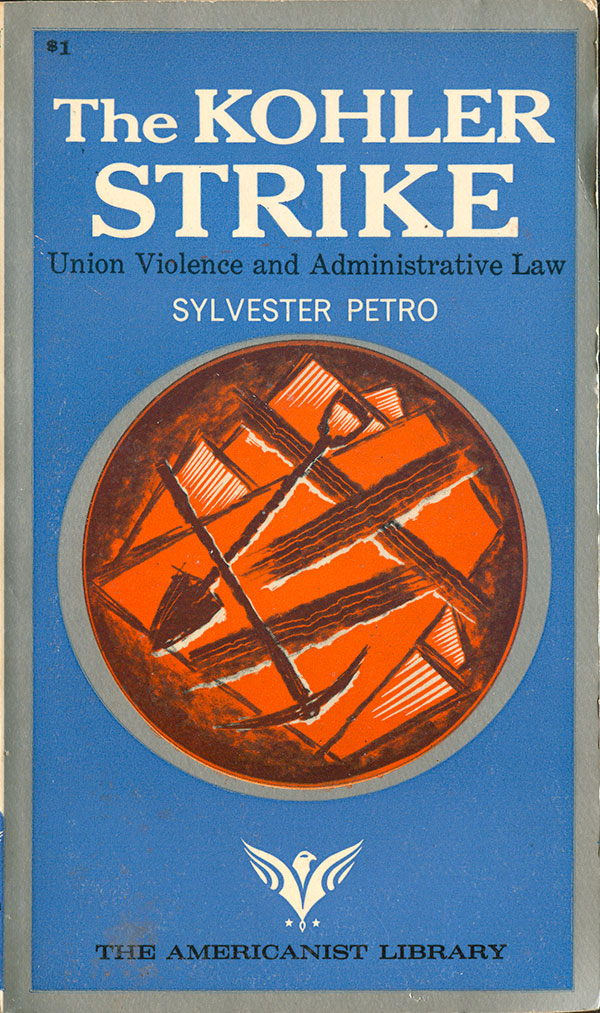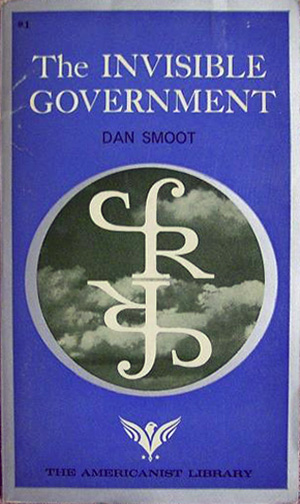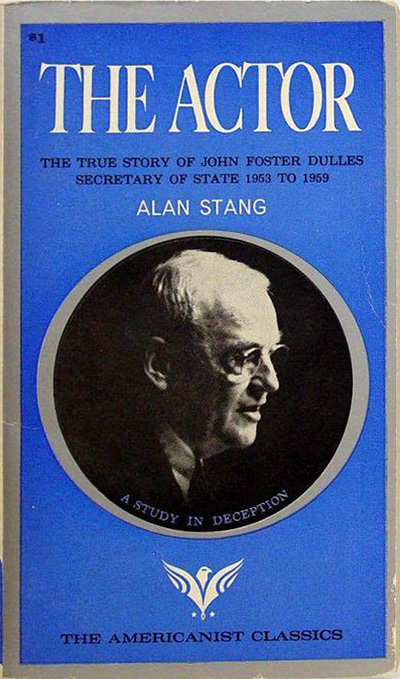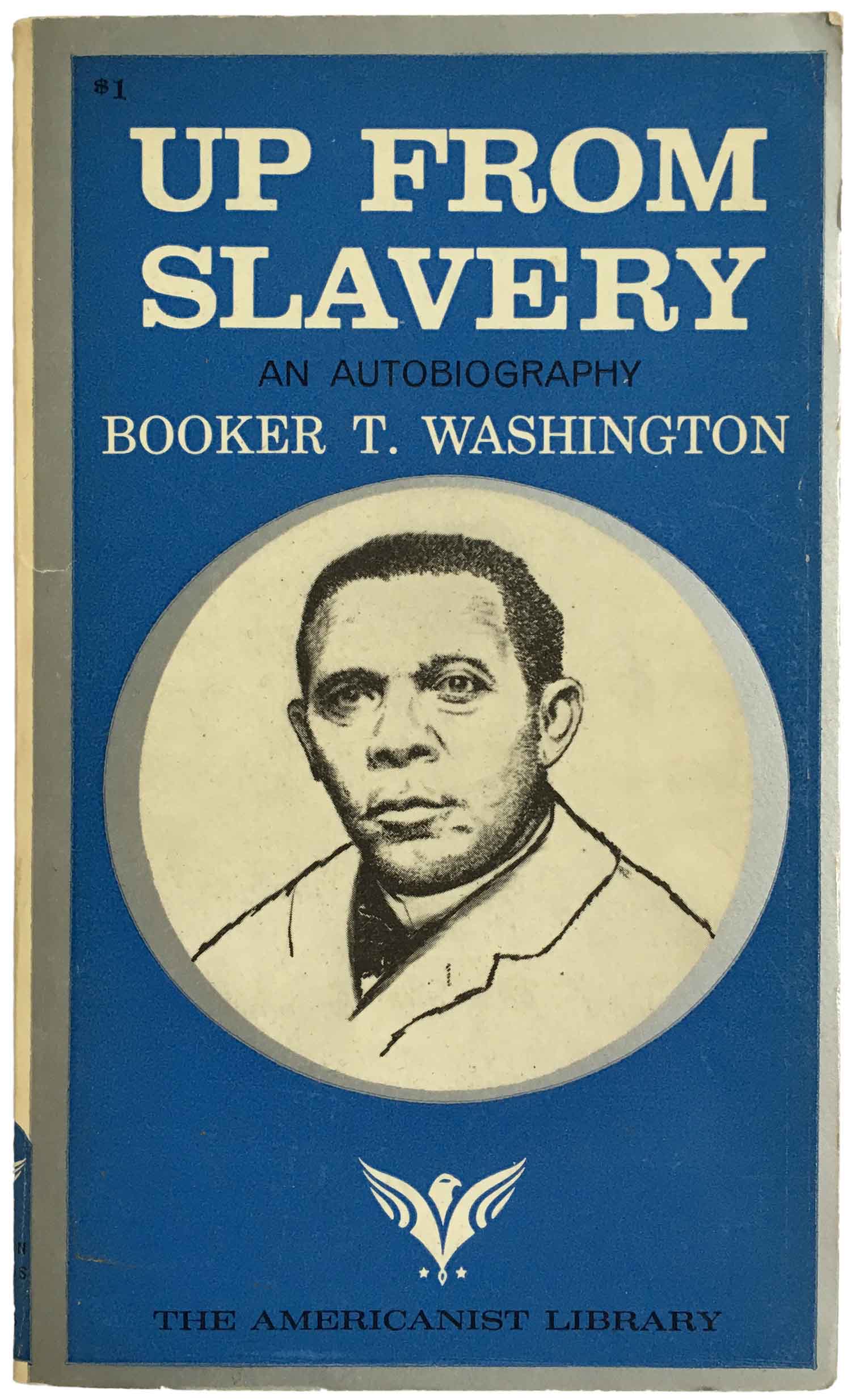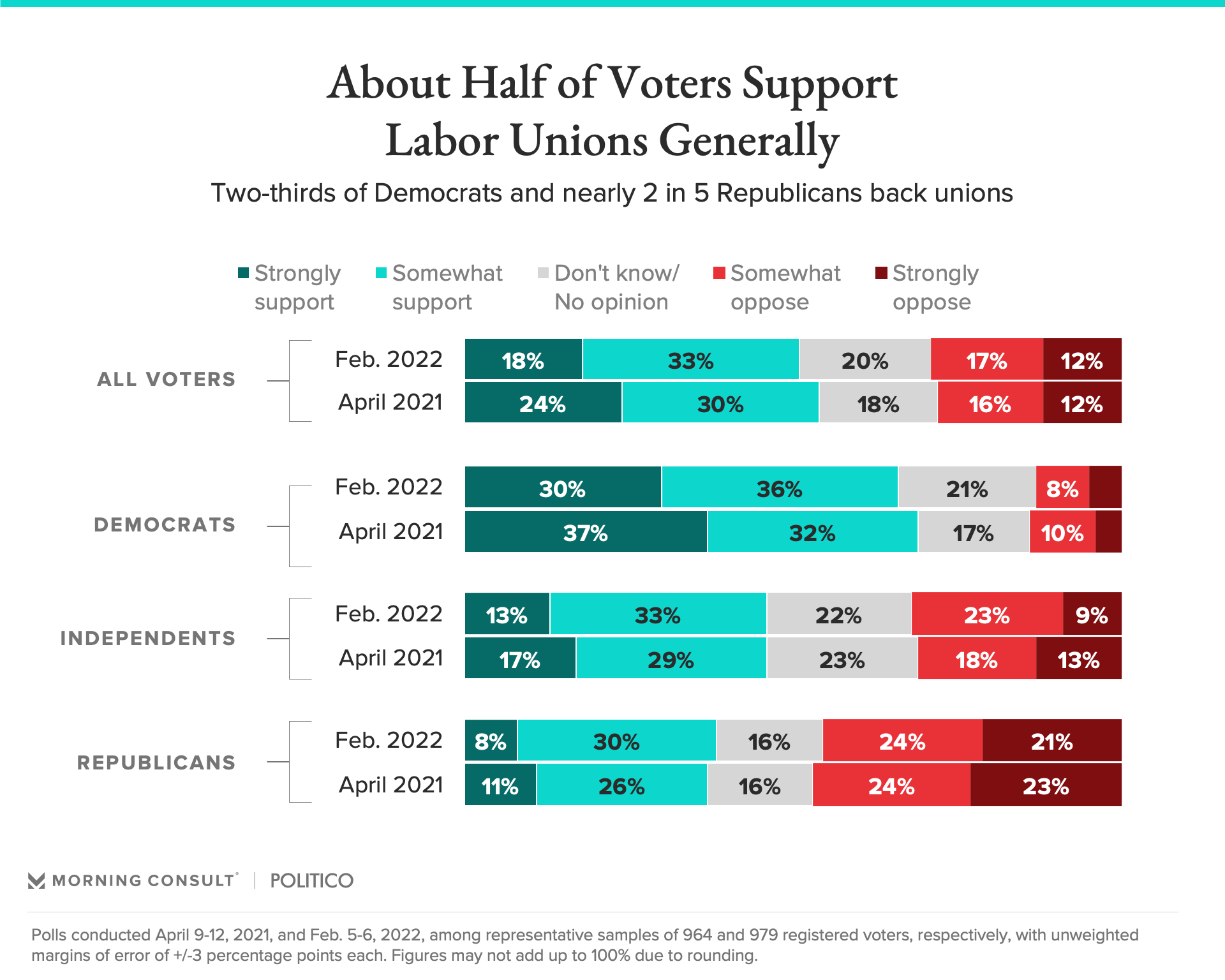Burnham managerial revolution paper Economic History
SECOND THOUGHTS ON JAMES BURNHAM
This material remains under copyright and is reproduced by kind permission of the Orwell Estate and Penguin Books.
James Burnham’s book, The Managerial Revolution, made a considerable stir both in the United States and in this country at the time when it was published, and its main thesis has been so much discussed that a detailed exposition of it is hardly necessary. As shortly as I can summarize it, the thesis is this:-
Capitalism is disappearing, but Socialism is not replacing it. What is now arising is a new kind of planned, centralized society which will be neither capitalist nor, in any accepted sense of the word, democratic. The rulers of this new society will be the people who effectively control the means of production: that is, business executives, technicians, bureaucrats and soldiers, lumped together by Burnham under the name of ‘managers’. These people will eliminate the old capitalist class, crush the working class, and so organize society that all power and economic privilege remain in their own hands. Private property rights will be abolished, but common ownership will not be established. The new ‘managerial’ societies will not consist of a patchwork of small, independent states, but of great super-states grouped round the main industrial centres in Europe, Asia, and America. These super-states will fight among themselves for possession of the remaining uncaptured portions of the earth, but will probably be unable to conquer one another completely. Internally, each society will be hierarchical, with an aristocracy of talent at the top and a mass of semi-slaves at the bottom.
In his next published book, The Machiavellians, Burnham elaborates and also modifies his original statement. The greater part of the book is an exposition of the theories of Machiavelli and of his modern disciples, Mosca, Michels, and Pareto: with doubtful justification, Burnham adds to these the syndicalist writer, Georges Sorel. What Burnham is mainly concerned to show is that a democratic society has never existed and so far as we can see, never will exist. Society is of its nature oligarchical, and the power of the oligarchy always rests upon force and fraud. Burnham does not deny that ‘good’ motives may operate in private life, but he maintains that politics consists of the struggle for power, and nothing else. All historical changes finally boil down to the replacement of one ruling class by another. All talk about democracy, liberty, equality, fraternity, all revolutionary movements, all visions of Utopia, or ‘the classless society’, or ‘the Kingdom of Heaven on earth’, are humbug (not necessarily conscious humbug) covering the ambitions of some new class which is elbowing its way into power. The English Puritans, the Jacobins, the Bolsheviks, were in each case simply power seekers using the hopes of the masses in order to win a privileged position for themselves. Power can sometimes be won or maintained without violence, but never without fraud, because it is necessary to make use of the masses, and the masses would not co-operate if they knew that they were simply serving the purposes of a minority. In each great revolutionary struggle the masses are led on by vague dreams of human brotherhood, and then, when the new ruling class is well established in power, they are thrust back into servitude. This is practically the whole of political history, as Burnham sees it.
Where the second book departs from the earlier one is in asserting that the whole process could be somewhat moralized if the facts were faced more honestly. The Machiavellians is sub-titled Defenders of Freedom. Machiavelli and his followers taught that in politics decency simply does not exist, and, by doing so, Burnham claims, made it possible to conduct political affairs more intelligently and less oppressively. A ruling class which recognized that its real aim was to stay in power would also recognize that it would be more likely to succeed if it served the common good, and might avoid stiffening into a hereditary aristocracy. Burnham lays much stress on Pareto’s theory of the ‘circulation of the élites’. If it is to stay in power a ruling class must constantly admit suitable recruits from below, so that the ablest men may always be at the top and a new class of power-hungry malcontents cannot come into being. This is likeliest to happen, Burnham considers, in a society which retains democratic habits – that is, where opposition is permitted and certain bodies such as the press and the trade unions can keep their autonomy. Here Burnham undoubtedly contradicts his earlier opinion. In The Managerial Revolution, which was written in 1940, it is taken as a matter of course that ‘managerial’ Germany is in all ways more efficient than a capitalist democracy such as France or Britain. In the second book, written in 1942, Burnham admits that the Germans might have avoided some of their more serious strategic errors if they had permitted freedom of speech. However, the main thesis is not abandoned. Capitalism is doomed, and Socialism is a dream. If we grasp what is at issue we may guide the course of the managerial revolution to some extent, but that revolution is happening, whether we like it or not. In both books, but especially the earlier one, there is a note of unmistakable relish over the cruelty and wickedness of the processes that are being discussed. Although he reiterates that he is merely setting forth the facts and not stating his own preferences, it is clear that Burnham is fascinated by the spectacle of power, and that his sympathies were with Germany so long as Germany appeared to be winning the war. A more recent essay, ‘Lenin’s Heir’, published in the Partisan Review about the beginning of 1945, suggests that this sympathy has since been transferred to the U.S.S.R. ‘Lenin’s Heir’, which provoked violent controversy in the American left-wing press, has not yet been reprinted in England, and I must return to it later.
It will be seen that Burnham’s theory is not, strictly speaking, a new one. Many earlier writers have foreseen the emergence of a new kind of society, neither capitalist nor Socialist, and probably based upon slavery: though most of them have differed from Burnham in not assuming this development to be inevitable. A good example is Hilaire Belloc’s book, The Servile State, published in 1911. The Servile State is written in a tiresome style, and the remedy it suggests (a return to small-scale peasant ownership) is for many reasons impossible: still, it does foretell with remarkable insight the kind of things that have been happening from about 1930 onwards. Chesterton, in a less methodical way, predicted the disappearance of democracy and private property, and the rise of a slave society which might be called either capitalist or Communist. Jack London, in The Iron Heel (1909), foretold some of the essential features of Fascism, and such books as Wells’ The Sleeper Awakes (1900), Zamyatin’s We (1923), and Aldous Huxley’s Brave New World (1930), all described imaginary worlds in which the special problems of capitalism had been solved without bringing liberty, equality, or true happiness any nearer. More recently, writers like Peter Drucker and F. A. Voigt have argued that Fascism and Communism are substantially the same thing. And indeed, it has always been obvious that a planned and centralized society is liable to develop into an oligarchy or a dictatorship. Orthodox Conservatives were unable to see this, because it comforted them to assume that Socialism ‘wouldn’t work’, and that the disappearance of capitalism would mean chaos and anarchy. Orthodox Socialists could not see it, because they wished to think that they themselves would soon be in power, and therefore assumed that when capitalism disappears, Socialism takes its place. As a result they were unable to foresee the rise of Fascism, or to make correct predictions about it after it had appeared. Later, the need to justify the Russian dictatorship and to explain away the obvious resemblances between Communism and Nazism clouded the issue still more. But the notion that industrialism must end in monopoly, and that monopoly must imply tyranny, is not a startling one.
Where Burnham differs from most other thinkers is in trying to plot the course of the ‘managerial revolution’ accurately on a world scale, and in assuming that the drift towards totalitarianism is irresistible and must not be fought against, though it may be guided. According to Burnham, writing in 1940, ‘managerialism’ has reached its fullest development in the U.S.S.R., but is almost equally well developed in Germany, and has made its appearance in the United States. He describes the New Deal as ‘primitive managerialism’. But the trend is the same everywhere, or almost everywhere. Always laissez-faire capitalism gives way to planning and state interference, the mere owner loses power as against the technician and the bureaucrat, but Socialism – that is to say, what used to be called Socialism – shows no sign of emerging:
Some apologists try to excuse Marxism by saying that it has ‘never had a chance’. This is far from the truth. Marxism and the Marxist parties have had dozens of chances. In Russia, a Marxist party took power. Within a short time it abandoned Socialism; if not in words, at any rate in the effect of its actions. In most European nations there were during the last months of the first world war and the years immediately thereafter, social crises which left a wide-open door for the Marxist parties: without exception they proved unable to take and hold power. In a large number of countries – Germany, Denmark, Norway, Sweden, Austria, England, Australia, New Zealand, Spain, France – the reformist Marxist parties have administered the governments, and have uniformly failed to introduce Socialism or make any genuine step towards Socialism. . . . These parties have, in practice, at every historical test – and there have been many – either failed Socialism or abandoned it. This is the fact which neither the bitterest foe nor the most ardent friend of Socialism can erase. This fact does not, as some think, prove anything about the moral quality of the Socialist ideal. But it does constitute unblinkable evidence that, whatever its moral quality, Socialism is no going to come.
Burnham does not, of course, deny that the new ‘managerial’ régimes, like the régimes of Russia and Nazi Germany, may be called Socialist. He means merely that they will not be Socialist in any sense of the word which would have been accepted by Marx, or Lenin, or Keir Hardie, or William Morris, or indeed, by any representative Socialist prior to about 1930. Socialism, until recently, was supposed to connote political democracy, social equality and internationalism. There is not the smallest sign that any of these things is in a way to being established anywhere, and the one great country in which something described as a proletarian revolution once happened, i.e. the U.S.S.R., has moved steadily away from the old concept of a free and equal society aiming at universal human brotherhood. In an almost unbroken progress since the early days of the Revolution, liberty has been chipped away and representative institutions smothered, while inequalities have increased and nationalism and militarism have grown stronger. But at the same time, Burnham insists, there has been no tendency to return to capitalism. What is happening is simply the growth of ‘managerialism’, which, according to Burnham, is in progress everywhere, though the manner in which it comes about may vary from country to country.
Now, as an interpretation of what is happening, Burnham’s theory is extremely plausible, to put it at the lowest. The events of, at any rate, the last fifteen years in the U.S.S.R. can be far more easily explained by this theory than by any other. Evidently the U.S.S.R. is not Socialist, and can only be called Socialist if one gives the word a meaning different from what it would have in any other context. On the other hand, prophecies that the Russian régime would revert to capitalism have always been falsified, and now seem further than ever from being fulfilled. In claiming that the process had gone almost equally far in Nazi Germany, Burnham probably exaggerates, but it seems certain that the drift was away from old-style capitalism and towards a planned economy with an adoptive oligarchy in control. In Russia the capitalists were destroyed first and the workers were crushed later. In Germany the workers were crushed first, but the elimination of the capitalists had at any rate begun, and calculations based on the assumption that Nazism was ‘simply capitalism’ were always contradicted by events. Where Burnham seems to go most astray is in believing ‘managerialism’ to be on the up-grade in the United States, the one great country where free capitalism is still vigorous. But if one considers the world movement as a whole, his conclusions are difficult to resist; and even in the United States the all-prevailing faith in laissez-faire may not survive the next great economic crisis. It has been urged against Burnham that he assigns far too much importance to the ‘managers’, in the narrow sense of the word – that is, factory bosses, planners and technicians – and seems to assume that even in Soviet Russia it is these people, and not the Communist Party chiefs, who are the real holders of power. However, this is a secondary error, and it is particularly corrected in The Machiavellians. The real question is not whether the people who wipe their boots on you during the next fifty years are to be called managers, bureaucrats, or politicians; the question is whether capitalism, now obviously doomed, is to give way to oligarchy or to true democracy.
But curiously enough, when one examines the predictions which Burnham has based on his general theory, one finds that in so far as they are verifiable, they have been falsified. Numbers of people have pointed this out already. However, it is worth following up Burnham’s predictions in detail because they form a sort of pattern which is related to contemporary events, and which reveals, I believe, a very important weakness in present-day political thought.
To begin with, writing in 1940, Burnham takes a German victory more or less for granted. Britain is described as ‘dissolving’, and as displaying ‘all the characteristics which have distinguished decadent cultures in past historical transitions’, while the conquest and integration of Europe which Germany achieved in 1940 is described as ‘irreversible’. ‘England,’ writes Burnham, ‘no matter with what non-European allies, cannot conceivably hope to conquer the European continent.’ Even if Germany should somehow manage to lose the war, she could not be dismembered or reduced to the status of the Weimar Republic, but is bound to remain as the nucleus of a unified Europe. The future map of the world, with its three great super-states is, in any case, already settled in its main outlines: and ‘the nuclei of these three super-states are, whatever may be their future names, the previously existing nations, Japan, Germany, and the United States’.
Burnham also commits himself to the opinion that Germany will not attack the U.S.S.R until after Britain has been defeated. In a condensation of his book published in the Partisan Review of May-June 1941, and presumably written later than the book itself, he says:
As in the case of Russia, so with Germany, the third part of the managerial problem – the contest for dominance with other sections of managerial society – remains for the future. First had to come the death-blow that assured the toppling of the capitalist world order, which meant above all the destruction of the foundations of the British Empire (the keystone of the capitalist world order) both directly and through the smashing of the European political structure, which was a necessary prop of the Empire. This is the basic explanation of the Nazi-Soviet Pact, which is not intelligible on other grounds. The future conflict between Germany and Russia will be a managerial conflict proper; prior to the great world-managerial battles, the end of the capitalist order must be assured. The belief that Nazism is ‘decadent capitalism’ . . . makes it impossible to explain reasonably the Nazi-Soviet Pact. From this belief followed the always expected war between Germany and Russia, not the actual war to the death between Germany and the British Empire. The war between Germany and Russia is one of the managerial wars of the future, not of the anti-capitalist wars of yesterday and today.
However, the attack on Russia will come later, and Russia is certain, or almost certain, to be defeated. ‘There is every reason to believe . . . that Russia will split apart, with the western half gravitating towards the European base and the eastern towards the Asiatic.’ This quotation comes from The Managerial Revolution. In the above-quoted article, written probably about six months later, it is put more forcibly: ‘the Russian weaknesses indicate that Russia will not be able to endure, that it will crack apart, and fall towards east and west.’ And in a supplementary note which was added to the English (Pelican) edition, and which appears to have been written at the end of 1941, Burnham speaks as though the ‘cracking apart’ process were already happening. The war, he says, ‘is part of the means whereby the western half of Russia is being integrated into the European super-state’.
Sorting these various statements out, we have the following prophecies:
- Germany is bound to win the war.
- Germany and Japan are bound to survive as great states, and to remain the nuclei of power in their respective area.
- Germany will not attack the U.S.S.R. until after the defeat of Britain.
- The U.S.S.R. is bound to be defeated.
However, Burnham has made other predictions besides these. In a short article in the Partisan Review, in the summer of 1944, he gives his opinion that the U.S.S.R. will gang up with Japan in order to prevent the total defeat of the latter, while the American Communists will be set to work to sabotage the eastern end of the war. And finally, in an article in the same magazine in the winter of 1944–45, he claims that Russia, destined so short a while ago to ‘crack apart’, is within sight of conquering the whole of Eurasia. This article, which was the cause of violent controversies among the American intelligentsia, has not been reprinted in England. I must give some account of it here, because its manner of approach and its emotional tone are of a peculiar kind, and by studying them one can get nearer to the real roots of Burnham’s theory.
The article is entitled ‘Lenin’s Heir’, and it sets out to show that Stalin is the true and legitimate guardian of the Russian Revolution, which he has not in any sense ‘betrayed’ but has merely carried forward on lines that were implicit in it from the start. In itself, this is an easier opinion to swallow than the usual Trotskyist claim that Stalin is a mere crook who has perverted the Revolution to his own ends, and that things would somehow have been different if Lenin had lived or Trotsky had remained in power. Actually there is no strong reason for thinking that the main lines of development would have been very different. Well before 1923 the seeds of a totalitarian society were quite plainly there. Lenin, indeed, is one of those politicians who win an undeserved reputation by dying prematurely.[1] Had he lived, it is probable that he would either have been thrown out, like Trotsky, or would have kept himself in power by methods as barbarous, or nearly as barbarous, as those of Stalin. The title of Burnham’s essay, therefore, sets forth a reasonable thesis, and one would expect him to support it by an appeal to the facts.
However, the essay barely touches upon its ostensible subject-matter. It is obvious that anyone genuinely concerned to show that there has been continuity of policy as between Lenin and Stalin would start by outlining Lenin’s policy and then explain in what way Stalin’s has resembled it. Burnham does not do this. Except for one or two cursory sentences he says nothing about Lenin’s policy, and Lenin’s name only occurs five times in an essay of twelve pages: in the first seven pages, apart from the title, it does not occur at all. The real aim of the essay is to present Stalin as a towering, superhuman figure, indeed a species of demigod, and Bolshevism as an irresistible force which is flowing over the earth and cannot be halted until it reaches the outermost borders of Eurasia. In so far as he makes any attempt to prove his case, Burnham does so by repeating over and over again that Stalin is ‘a great man’ – which is probably true, but is almost completely irrelevant. Moreover, though he does advance some solid arguments for believing in Stalin’s genius, it is clear that in his mind the idea of ‘greatness’ is inextricably mixed up with the idea of cruelty and dishonesty. There are curious passages in which it seems to be suggested that Stalin is to be admired because of the limitless suffering that he has caused:
Stalin proves himself a ‘great man’, in the grand style. The accounts of the banquets, staged in Moscow for the visiting dignitaries, set the symbolic tone. With their enormous menus of sturgeon, and roasts, and fowl, and sweets; their streams of liquor, the scores of toasts with which they end; the silent, unmoving secret police behind each guest; all against the winter background of the starving multitudes of besieged Leningrad; the dying millions at the front: the jammed concentration camps; the city crowds kept by their minute rations just at the edge of life; there is little trace of dull mediocrity or the hand of Babbitt. We recognize, rather, the tradition of the most spectacular of the Tsars, of the Great Kings of the Medes and Persians, of the Khanate of the Golden Horde, of the banquet we assign to the gods of the Heroic Ages in tribute to the insight that insolence, and indifference, and brutality on such a scale remove beings from the human level. . . . Stalin’s political techniques shows a freedom from conventional restrictions that is incompatible with mediocrity: the mediocre man is custom-bound. Often it is the scale of their operations that sets them apart. It is usual, for example, for men active in practical life to engineer an occasional frame-up. But to carry out a frame-up against tens of thousands of persons, important percentages of whole strata of society, including most of one’s own comrades, is so far out of the ordinary that the long-run mass conclusion is either that the frame-up must be true – at least ‘have some truth in it’ – or that power so immense must be submitted to – is a ‘historical necessity’, as intellectuals put it. . . . There is nothing unexpected in letting a few individuals starve for reasons of state; but to starve, by deliberate decision, several millions, is a type of action attributed ordinarily only to gods.
In these and other similar passages there may be a tinge of irony, but it is difficult not to feel that there is also a sort of fascinated admiration. Towards the end of the essay Burnham compares Stalin with those semi-mythical heroes, like Moses or Asoka, who embody in themselves a whole epoch, and can justly be credited with feats that they did not actually perform. In writing of Soviet foreign policy and its supposed objectives, he touches an even more mystical note:
Starting from the magnetic core of the Eurasian heartland, the Soviet power, like the reality of the One of Neo-Platonism overflowing in the descending series of the emanative progression, flows outward, west into Europe, south into the Near East, east into China, already lapping the shores of the Atlantic, the Yellow and China Seas, the Mediterranean, and the Persian Gulf. As the undifferentiated One, in its progression, descends through the stages of Mind, Soul, and Matter, and then through its fatal Return back to itself; so does the Soviet power, emanating from the integrally totalitarian centre, proceed outwards by Absorption (the Baltics, Bessarabia, Bukovina, East Poland), Domination (Finland, the Balkans, Mongolia, North China and, tomorrow, Germany), Orienting Influence (Italy, France, Turkey, Iran, Central and south China . . .), until it is dissipated in MH ON, the outer material sphere, beyond the Eurasian boundaries, of momentary Appeasement and Infiltration (England, the United States).
I do not think it is fanciful to suggest that the unnecessary capital letters with which this passage is loaded are intended to have a hypnotic effect on the reader. Burnham is trying to build up a picture of terrifying, irresistible power, and to turn a normal political manoeuvre like infiltration into Infiltration adds to the general portentousness. The essay should be read in full. Although it is not the kind of tribute that the average russophile would consider acceptable, and although Burnham himself would probably claim that he is being strictly objective, he is in effect performing an act of homage, and even of self-abasement. Meanwhile, this essay gives us another prophecy to add to the list; i.e. that the U.S.S.R. will conquer the whole of Eurasia, and probably a great deal more. And one must remember that Burnham’s basic theory contains, in itself, a prediction which still has to be tested – that is, that whatever else happens, the ‘managerial’ form of society is bound to prevail.
Burnham’s earlier prophecy, of a German victory in the war and the integration of Europe round the German nucleus, was falsified, not only in its main outlines, but in some important details. Burnham insists all the way through that ‘managerialism’ is not only more efficient than capitalist democracy or Marxian Socialism, but also more acceptable to the masses. The slogans of democracy and national self-determination, he says, no longer have any mass appeal: ‘managerialism’, on the other hand, can rouse enthusiasm, produce intelligible war aims, establish fifth columns everywhere, and inspire its soldiers with a fanatical morale. The ‘fanaticism’ of the Germans, as against the ‘apathy’ or ‘indifference’ of the British, French, etc., is much emphasized, and Nazism is represented as a revolutionary force sweeping across Europe and spreading its philosophy ‘by contagion’. The Nazi fifth columns ‘cannot be wiped out’, and the democratic nations are quite incapable of projecting any settlement which the German or other European masses would prefer to the New Order. In any case, the democracies can only defeat Germany if they go ‘still further along the managerial road than Germany has yet gone’.
The germ of truth in all this is that the smaller European states, demoralized by the chaos and stagnation of the pre-war years, collapsed rather more quickly than they need have done, and might conceivably have accepted the New Order if the Germans had kept same of their promises. But the actual experience of German rule aroused almost at once such a fury of hatred and vindictiveness as the world has seldom seen. After about the beginning of 1941 there was hardly any need of a positive war aim, since getting rid of the Germans was a sufficient objective. The question of morale, and its relation to national solidarity, is a nebulous one, and the evidence can be so manipulated as to prove almost anything. But if one goes by the proportion of prisoners to other casualties, and the amount of quislingism, the totalitarian states come out of the comparison worse than the democracies. Hundreds of thousands of Russians appear to have gone over to the Germans during the course of the war, while comparable numbers of Germans and Italians had gone over to the Allies before the war started: the corresponding number of American or British renegades would have amounted to a few scores. As an example of the inability of ‘capitalist ideologies’ to enlist support, Burnham cites ‘the complete failure of voluntary military recruiting in England (as well as the entire British Empire) and in the United States’. One would gather from this that the armies of the totalitarian states were manned by volunteers. Actually, no totalitarian state has ever so much as considered voluntary recruitment for any purpose, nor, throughout history, has a large army ever been raised by voluntary means.[2] It is not worth listing the many similar arguments that Burnham puts forward. The point is that he assumes that the Germans must win the propaganda war as well as the military one, and that, at any rate in Europe, this estimate was not borne out by events.
It will be seen that Burnham’s predictions have not merely, when they were verifiable, turned out to be wrong, but that they have sometimes contradicted one another in a sensational way. It is this last fact that is significant. Political predictions are usually wrong, because they are usually based on wish-thinking, but they can have symptomatic value, especially when they change abruptly. Often the revealing factor is the date at which they are made. Dating Burnham’s various writings as accurately as can be done from internal evidence, and then noting what events they coincided with, we find the following relationships:-
In the supplementary note added to the English edition of the book, Burnham appears to assume that the U.S.S.R. is already beaten and the splitting-up process is about to begin. This was published in the spring of 1942 and presumably written at the end of 1941; i.e. when the Germans were in the suburbs of Moscow.
The prediction that Russia would gang up with Japan against the U.S.A. was written early in 1944, soon after the conclusion of a new Russo-Japanese treaty.
The prophecy of Russian world conquest was written in the winter of 1944, when the Russians were advancing rapidly in eastern Europe while the Western Allies were still held up in Italy and northern France.
It will be seen that at each point Burnham is predicting a continuation of the thing that is happening. Now the tendency to do this is not simply a bad habit, like inaccuracy or exaggeration, which one can correct by taking thought. It is a major mental disease, and its roots lie partly in cowardice and partly in the worship or power, which is not fully separable from cowardice.
Suppose in 1940 you had taken a Gallup poll, in England, on the question ‘Will Germany win the war?’ You would have found, curiously enough, that the group answering ‘Yes’ contained a far higher percentage of intelligent people – people with IQ of over 120, shall we say – than the group answering ‘No’. The same would have held good in the middle of 1942. In this case the figures would not have been so striking, but if you had made the question ‘Will the Germans capture Alexandria?’ or ‘Will the Japanese be able to hold on to the territories they have captured?’, then once again there would have been a very marked tendency for intelligence to concentrate in the ‘Yes’ group. In every case the less-gifted person would have been likelier to give a right answer.
If one went simply by these instances, one might assume that high intelligence and bad military judgement always go together. However, it is not so simple as that. The English intelligentsia, on the whole, were more defeatist than the mass of the people – and some of them went on being defeatist at a time when the war was quite plainly won – partly because they were better able to visualize the dreary years of warfare that lay ahead. Their morale was worse because their imaginations were stronger. The quickest way of ending a war is to lose it, and if one finds the prospect of a long war intolerable, it is natural to disbelieve in the possibility of victory. But there was more to it than that. There was also the disaffection of large numbers of intellectuals, which made it difficult for them not to side with any country hostile to Britain. And deepest of all, there was admiration – though only in a very few cases conscious admiration – for the power, energy and cruelty of the Nazi régime. It would be a useful though tedious labour to go through the left-wing press and enumerate all the hostile references to Nazism during the years 1935–45. One would find, I have little doubt, that they reached their high-water mark in 1937–38 and 1944–45, and dropped off noticeably in the years 1939–42 – that is, during the period when Germany seemed to be winning. One would find, also, the same people advocating a compromise peace in 1940 and approving the dismemberment of Germany in 1945. And if one studied the reactions of the English intelligentsia towards the U.S.S.R., there, too, one would find genuinely progressive impulses mixed up with admiration for power and cruelty. It would be grossly unfair to suggest that power worship is the only motive for russophile feeling, but it is one motive, and among intellectuals it is probably the strongest one.
Power worship blurs political judgement because it leads, almost unavoidably, to the belief that present trends will continue. Whoever is winning at the moment will always seem to be invincible. If the Japanese have conquered south Asia, then they will keep south Asia for ever, if the Germans have captured Tobruk, they will infallibly capture Cairo; if the Russians are in Berlin, it will not be long before they are in London: and so on. This habit of mind leads also to the belief that things will happen more quickly, completely, and catastrophically than they ever do in practice. The rise and fall of empires, the disappearance of cultures and religions, are expected to happen with earthquake suddenness, and processes which have barely started are talked about as though they were already at an end. Burnham’s writings are full of apocalyptic visions. Nations, governments, classes and social systems are constantly described as expanding, contracting, decaying, dissolving, toppling, crashing, crumbling, crystallizing, and, in general, behaving in an unstable and melodramatic way. The slowness of historical change, the fact that any epoch always contains a great deal of the last epoch, is never sufficiently allowed for. Such a manner of thinking is bound to lead to mistaken prophecies, because, even when it gauges the direction of events rightly, it will miscalculate their tempo. Within the space of five years Burnham foretold the domination of Russia by Germany and of Germany by Russia. In each case he was obeying the same instinct: the instinct to bow down before the conqueror of the moment, to accept the existing trend as irreversible. With this in mind one can criticize his theory in a broader way.
The mistakes I have pointed out do not disprove Burnham’s theory, but they do cast light on his probable reasons for holding it. In this connexion one cannot leave out of account the fact that Burnham is an American. Every political theory has a certain regional tinge about it, and every nation, every culture, has its own characteristic prejudices and patches of ignorance. There are certain problems that must almost inevitably be seen in a different perspective according to the geographical situation from which one is looking at them. Now, the attitude that Burnham adopts, of classifying Communism and Fascism as much the same thing, and at the same time accepting both of them – or, at any rate, not assuming that either must be violently struggled against – is essentially an American attitude, and would be almost impossible for an Englishman or any other western European. English writers who consider Communism and Fascism to be the same thing invariably hold that both are monstrous evils which must be fought to the death: on the other hand, any Englishman who believes Communism and Fascism to be opposites will feel that he ought to side with one or the other.[3] The reason for this difference of outlook is simple enough and, as usual, is bound up with wish-thinking. If totalitarianism triumphs and the dreams of the geopoliticians come true, Britain will disappear as a world power and the whole of western Europe will be swallowed by some single great state. This is not a prospect that it is easy for an Englishman to contemplate with detachment. Either he does not want Britain to disappear – in which case he will tend to construct theories proving the thing that he wants – or, like a minority of intellectuals, he will decide that his country is finished and transfer his allegiance to some foreign power. An American does not have to make the same choice. Whatever happens, the United States will survive as a great power, and from the American point of view it does not make much difference whether Europe is dominated by Russia or by Germany. Most Americans who think of the matter at all would prefer to see the world divided between two or three monster states which had reached their natural boundaries and could bargain with one another on economic issues without being troubled by ideological differences. Such a world-picture fits in with the American tendency to admire size for its own sake and to feel that success constitutes justification, and it fits in with the all-prevailing anti-British sentiment. In practice. Britain and the United States have twice been forced into alliance against Germany, and will probably, before long, be forced into alliance against Russia: but, subjectively, a majority of Americans would prefer either Russia or Germany to Britain, and, as between Russia and Germany, would prefer whichever seemed stronger at the moment.[4] It is, therefore, not surprising that Burnham’s world-view should often be noticeably close to that of the American imperialists on the one side, or to that of the isolationists on the other. It is a ‘tough’ or ‘realistic’ world-view which fits in with the American form of wish-thinking. The almost open admiration for Nazi methods which Burnham shows in the earlier of his two books, and which would seem shocking to almost any English reader, depends ultimately on the fact that the Atlantic is wider than the Channel.
As I have said earlier, Burnham has probably been more right than wrong about the present and the immediate past. For quite fifty years past the general drift has almost certainly been towards oligarchy. The ever-increasing concentration of industrial and financial power; the diminishing importance of the individual capitalist or shareholder, and the growth of the new ‘managerial’ class of scientists, technicians, and bureaucrats; the weakness of the proletariat against the centralized state; the increasing helplessness of small countries against big ones; the decay of representative institutions and the appearance of one-party régimes based on police terrorism, faked plebiscites, etc.: all these things seem to point in the same direction. Burnham sees the trend and assumes that it is irresistible, rather as a rabbit fascinated by a boa constrictor might assume that a boa constrictor is the strongest thing in the world. When one looks a little deeper, one sees that all his ideas rest upon two axioms which are taken for granted in the earlier book and made partly explicit in the second one. They are:
- Politics is essentially the same in all ages.
- Political behaviour is different from other kinds of behaviour.
To take the second point first. In The Machiavellians, Burnham insists that politics is simply the struggle for power. Every great social movement, every war, every revolution, every political programme, however edifying and Utopian, really has behind it the ambitions of some sectional group which is out to grab power for itself. Power can never be restrained by any ethical or religious code, but only by other power. The nearest possible approach to altruistic behaviour is the perception by a ruling group that it will probably stay in power longer if it behaves decently. But curiously enough, these generalizations only apply to political behaviour, not to any other kind of behaviour. In everyday life, as Burnham sees and admits, one cannot explain every human action by applying the principle of cui bono? Obviously, human beings have impulses which are not selfish. Man, therefore, is an animal that can act morally when be acts as an individual, but becomes unmoral when he acts collectively. But even this generalization only holds good for the higher groups. The masses, it seems, have vague aspirations towards liberty and human brotherhood, which are easily played upon by power-hungry individuals or minorities. So that history consists of a series of swindles, in which the masses are first lured into revolt by the promise of Utopia, and then, when they have done their job, enslaved over again by new masters.
Political activity, therefore, is a special kind of behaviour, characterized by its complete unscrupulousness, and occurring only among small groups of the population, especially among dissatisfied groups whose talents do not get free play under the existing form of society. The great mass of the people – and this is where (2) ties up with (1) – will always be unpolitical. In effect, therefore, humanity is divided into two classes: the self-seeking, hypocritical minority, and the brainless mob whose destiny is always to be led or driven, as one gets a pig back to the sty by kicking it on the bottom or rattling a stick inside a swill-bucket, according to the needs of the moment, And this beautiful pattern is to continue for ever. Individuals may pass from one category to another, whole classes may destroy other classes and rise to the dominant position, but the division of humanity into rulers and ruled is unalterable. In their capabilities, as in their desires and needs, men are not equal. There is an ‘iron law of oligarchy’, which would operate even if democracy were not impossible for mechanical reasons.
It is curious that in all his talk about the struggle for power, Burnham never stops to ask why people want power. He seems to assume that power hunger, although only dominant in comparatively few people, is a natural instinct that does not have to be explained, like the desire for food. He also assumes that the division of society into classes serves the same purpose in all ages. This is practically to ignore the history of hundreds of years. When Burnham’s master, Machiavelli, was writing, class divisions were not only unavoidable, but desirable. So long as methods of production were primitive, the great mass of the people were necessarily tied down to dreary, exhausting manual labour: and a few people had to be set free from such labour, otherwise civilization could not maintain itself, let alone make any progress. But since the arrival of the machine the whole pattern has altered. The justification for class distinctions, if there is a justification, is no longer the same, because there is no mechanical reason why the average human being should continue to be a drudge. True, drudgery persists; class distinctions are probably re-establishing themselves in a new form, and individual liberty is on the down-grade: but as these developments are now technically avoidable, they must have some psychological cause which Burnham makes no attempt to discover. The question that he ought to ask, and never does ask, is: Why does the lust for naked power become a major human motive exactly now, when the dominion of man over man is ceasing to be necessary? As for the claim that ‘human nature’, or ‘inexorable laws’ of this and that, make Socialism impossible, is simply a projection of the past into the future. In effect, Burnham argues that because a society of free and equal human beings has never existed, it never can exist. By the same argument one could have demonstrated the impossibility of aeroplanes in 1900, or of motor cars in 1850.
The notion that the machine has altered human relationships, and that in consequence Machiavelli is out of date, is a very obvious one. If Burnham fails to deal with it, it can, I think, only be because his own power instinct leads him to brush aside any suggestion that the Machiavellian world of force, fraud, and tyranny may somehow come to an end. It is important to bear in mind what I said above: that Burnham’s theory is only a variant – an American variant, and interesting because of its comprehensiveness – of the power worship now so prevalent among intellectuals. A more normal variant, at any rate in England, is Communism. If one examines the people who, having some idea of what the Russian régime is like, are strongly russophile, one finds that, on the whole, they belong to the ‘managerial’ class of which Burnham writes. That is, they are not managers in the narrow sense, but scientists, technicians, teachers, journalists, broadcasters, bureaucrats, professional politicians: in general, middling people who feel themselves cramped by a system that is still partly aristocratic, and are hungry for more power and more prestige. These people look towards the U.S.S.R. and see in it, or think they see, a system which eliminates the upper class, keeps the working class in its place, and hands unlimited power to people very similar to themselves. It was only after the Soviet régime became unmistakably totalitarian that English intellectuals, in large numbers, began to show an interest in it. Burnham, although the English russophile intelligentsia would repudiate him, is really voicing their secret wish: the wish to destroy the old, equalitarian version of Socialism and usher in a hierarchical society where the intellectual can at last get his hands on the whip. Burnham at least has the honesty to say that Socialism isn’t coming; the others merely say that Socialism is coming, and then give the word ‘Socialism’ a new meaning which makes nonsense of the old one. But his theory, for all its appearance of objectivity, is the rationalization of a wish. There is no strong reason for thinking that it tells us anything about the future, except perhaps the immediate future. It merely tells us what kind of world the ‘managerial’ class themselves, or at least the more conscious and ambitious members of the class, would like to live in.
Fortunately the ‘managers’ are not so invincible as Burnham believes. It is curious how persistently, in The Managerial Revolution, he ignores the advantages, military as well as social, enjoyed by a democratic country. At every point the evidence is squeezed in order to show the strength, vitality, and durability of Hitler’s crazy régime. Germany is expanding rapidly, and ‘rapid territorial expansion has always been a sign, not of decadence . . . but of renewal’. Germany makes war successfully, and ‘the ability to make war well is never a sign of decadence but of its opposite’. Germany also ‘inspires in millions of persons a fanatical loyalty. This, too, never accompanies decadence’. Even the cruelty and dishonesty of the Nazi régime are cited in its favour, since ‘the young, new, rising social order is, as against the old, more likely to resort on a large scale to lies, terror, persecution’. Yet, within only five years this young, new, rising social order had smashed itself to pieces and become, in Burnham’s usage of the word, decadent. And this had happened quite largely because of the ‘managerial’ (i.e. undemocratic) structure which Burnham admires. The immediate cause of the German defeat was the unheard-of folly of attacking the U.S.S.R. while Britain was still undefeated and America was manifestly getting ready to fight. Mistakes of this magnitude can only be made, or at any rate they are most likely to be made, in countries where public opinion has no power. So long as the common man can get a hearing, such elementary rules as not fighting all your enemies simultaneously are less likely to be violated.
But, in any case, one should have been able to see from the start that such a movement as Nazism could not produce any good or stable result. Actually, so long as they were winning, Burnham seems to have seen nothing wrong with the methods of the Nazis. Such methods, he says, only appear wicked because they are new:
There is no historical law that polite manners and ‘justice’ shall conquer. In history there is always the question of whose manners and whose justice. A rising social class and a new order of society have got to break through the old moral codes just as they must break through the old economic and political institutions. Naturally, from the point of view of the old, they are monsters. If they win, they take care in due time of manners and morals.
This implies that literally anything can become right or wrong if the dominant class of the moment so wills it. It ignores the fact that certain rules of conduct have to be observed if human society is to hold together at all. Burnham, therefore, was unable to see that the crimes and follies of the Nazi régime must lead by one route or other to disaster. So also with his new-found admiration for Stalin. It is too early to say in just what way the Russian régime will destroy itself. If I had to make a prophecy, I should say that a continuation of the Russian policies of the last fifteen years – and internal and external policy, of course, are merely two facets of the same thing – can only lead to a war conducted with atomic bombs, which will make Hitler’s invasion look like a tea-party. But at any rate, the Russian régime will either democratize itself, or it will perish. The huge, invincible, everlasting slave empire of which Burnham appears to dream will not be established, or, if established, will not endure, because slavery is no longer a stable basis for human society.
One cannot always make positive prophecies, but there are times when one ought to be able to make negative ones. No one could have been expected to foresee the exact results of the Treaty of Versailles, but millions of thinking people could and did foresee that those results would be bad. Plenty of people, though not so many in this case, can foresee that the results of the settlement now being forced on Europe will also be bad. And to refrain from admiring Hitler or Stalin – that, too, should not require an enormous intellectual effort. But it is partly a moral effort. That a man of Burnham’s gifts should have been able for a while to think of Nazism as something rather admirable, something that could and probably would build up a workable and durable social order shows, what damage is done to the sense of reality by the cultivation of what is now called ‘realism’.
ORWELL’S NOTES
[1] It is difficult to think of any politician who has lived to be eighty and still been regarded as a success. What we call a ‘great’ statesman normally means one who dies before his policy has had time to take effect. If Cromwell had lived a few years longer he would probably have fallen from power, in which case we should now regard him as a failure. If Pétain had died in 1930, France would have venerated him as a hero and patriot. Napoleon remarked once that if only a cannon-ball had happened to hit him when he was riding into Moscow, he would have gone down to history as the greatest man who ever lived.[2] Great Britain raised a million volunteers in the earlier part of the 1914–18 war. This must be a world’s record, but the pressures applied were such that it is doubtful whether the recruitment ought to be described as voluntary. Even the most ‘ideological’ wars have been fought largely by pressed men. In the English Civil War, the Napoleonic wars, the American Civil War, the Spanish Civil War, etc., both sides resorted to conscription or the press gang.[3] The only exception I am able to think of is Bernard Shaw, who, for some years at any rate, declared Communism and Fascism to be much the same thing, and was in favour of both of them. But Shaw, after all, is not an Englishman, and probably does not feel his fate to be bound up with that of Britain.[4] As late as the autumn of 1945, a Gallup poll taken among the American troops in Germany showed that 51 per cent ‘thought Hitler did much good before 1939’. This was after five years of anti-Hitler propaganda. The verdict, as quoted, is not very strongly favourable to Germany, but it is hard to believe that a verdict equally favourable to Britain would be given by anywhere near 51 per cent of the American army.Published by Polemic, May 1946, and as James Burnham and the Managerial Revolution when published as a pamphlet, 1946












